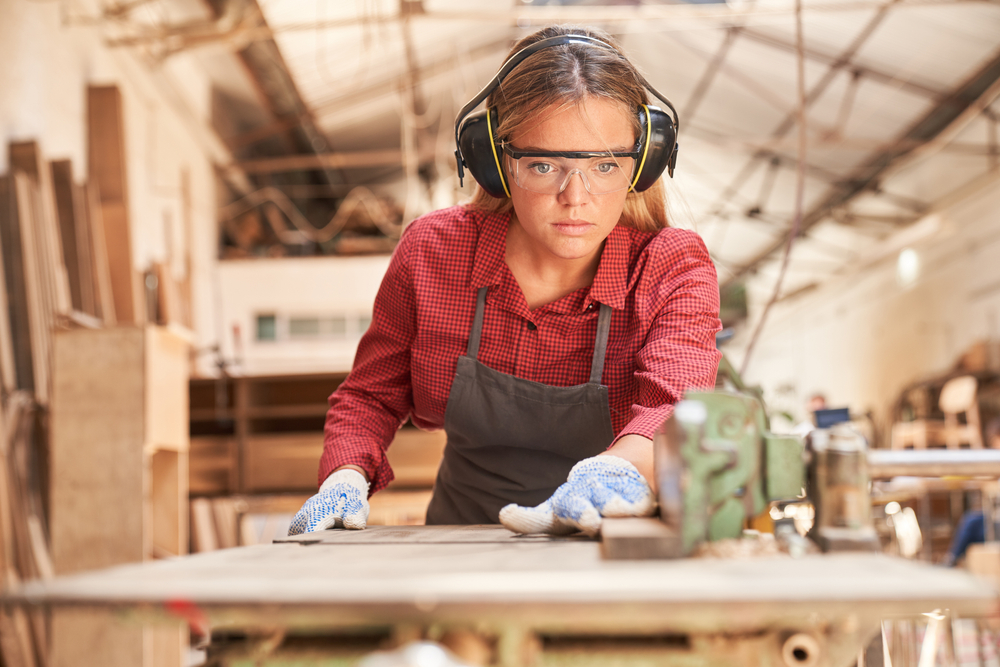
Hearing protection plays an important role in safeguarding your ears against damaging noise levels, whether at work, concerts, or even while doing DIY projects at home. However, several factors can hinder the effectiveness of your hearing protection, leaving you exposed to possible risks. In order to understand and effectively maximize the advantages of your ear protection, it’s crucial to understand these issues.
Common reasons why hearing protection falters
Unexpected difficulties will happen even when you follow best practices. You wear your earmuffs faithfully at work, wear earplugs at concerts, and stay away from noisy situations whenever you can. However, the effectiveness of your hearing protection can be reduced by specific variables. Fortunately, by recognizing these common pitfalls, you can make informed adjustments to ensure your hearing is always well-protected.
1. Specific circumstances call for specific types of hearing protection
Hearing protection isn’t one-size-fits-all, and selecting the wrong type for a given environment can reduce its effectiveness.
In general, hearing protection comes in two main categories:
- Earplugs: Small foam or rubber plugs that tuck tightly into the ear canal.
- Earmuffs: Bigger, headphone-like device that goes over the whole ear.
Each kind has its best use case:
- In settings like a construction site where noise is periodic and you might need to frequently remove your hearing protection, earmuffs are the more effective choice.
- Locations with a constant noise threshold, including a factory floor or the cabin of an airliner, are the perfect times to use earplugs.
If you’re in a quiet environment and need to temporarily remove your hearing protection, earmuffs are easier to handle. Disposable earplugs, on the other hand, can leave you susceptible to hearing damage because they can be easily misplaced. The first step towards effectively protecting your hearing is to choose the right type of hearing protection.
2. Fit and function are impacted by anatomy
Everybody’s ears are unique, meaning that not all hearing protection devices will fit everyone equally well. An average sized ear is what standard earplugs and earmuffs are designed for, but a more customized solution might be required for your ear’s anatomy.
- Larger ear structures: Bigger ears can make earmuffs uncomfortable, causing gaps in the seal that allow noise to enter.
- Smaller ear canals: The noise-blocking ability of standard-sized earplugs might not be effective if narrower ear canals prevent the formation of a sufficient seal.
If your hearing protection doesn’t fit properly, you could become discouraged and choose to discontinue using them altogether which can endanger your hearing. If you spend substantial time in noisy settings, think about investing in custom-molded earplugs or professionally fitted earmuffs. These personalized solutions provide maximum comfort and effectiveness, ensuring you remain protected in any scenario.
3. Failing to maintain or replace hearing protection
Like any piece of equipment, hearing protection devices need maintenance to continue to be effective. Wear and tear, incorrect cleaning, and neglecting replacement schedules can all compromise their ability to protect your ears.
The following are a number of tips on how to care for hearing protection:
- Clean Properly: Earplugs and earmuffs come into contact with earwax and other debris, which can accumulate over time. Wash them regularly using manufacturer-recommended methods to ensure cleanliness without damaging the material.
- Replace Cushions: The flexibility of earmuff cushions can decrease over time. Replace them when necessary to maintain a proper seal.
- Inspect for Damage: Frequently check the elastic band on earmuffs. A slack or stretched band can decrease their snug fit, lowering their noise-blocking ability.
Ignoring these simple maintenance duties can render your hearing protection less effective or even unusable. In order to ensure consistent and effective performance, and to extend their lifespan, it’s crucial to keep these routine maintenance schedules.
The advantage of a hearing specialist
Schedule an appointment with us for an evaluation if you think that your hearing protection may not be doing the job. We can check your present devices, recommend alternatives, and even offer custom solutions tailored to your particular needs.
Keeping your hearing safe is a commitment that lasts a lifetime and it’s important that you do it with the best tools. By addressing these common challenges, you can confidently protect your ears from harmful noise and preserve your hearing for years to come.